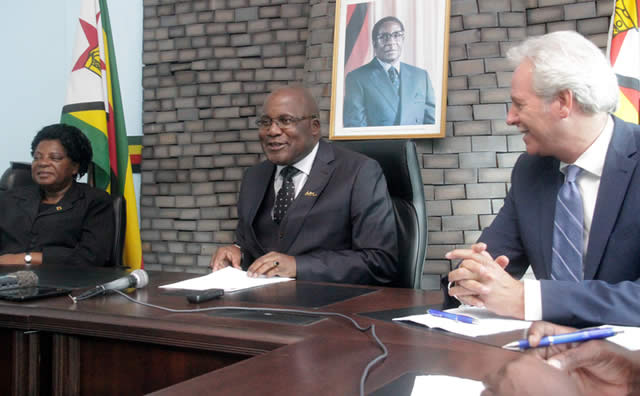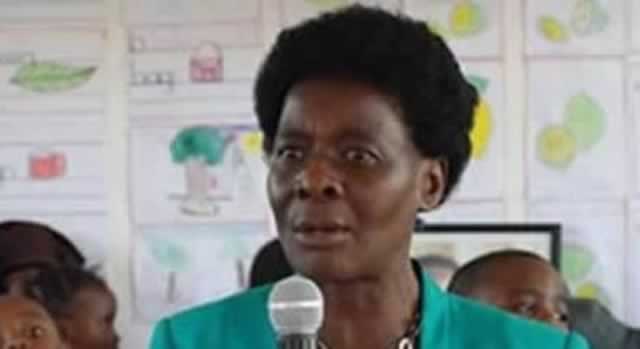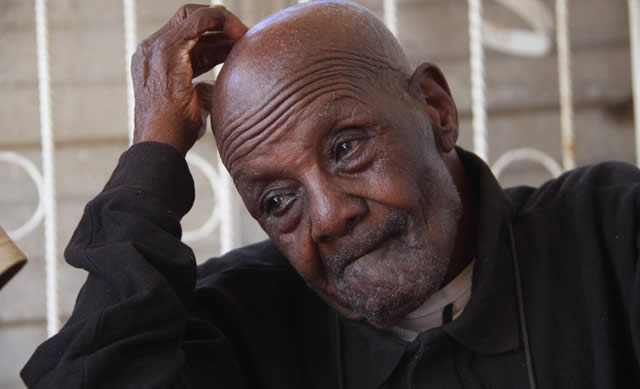Govt committed to media development


Information, Media and Broadcasting Services Minister Dr Christopher Mushohwe gives a statement on World Press Freedom Day flanked by his deputy Thokozile Mathuthu (left) and UNESCO Regional Director and Representative Professor Hubert Gijzen in Harare yesterday. — (Picture by Munyaradzi Chamalimba)
Felex Share Senior Reporter—
Government is revisiting existing media laws to plug gaps and inadequacies that have a bearing on the creation of a conducive environment for the development of the media industry, Information, Media and Broadcasting Services Minister Dr Christopher Mushohwe has said. In his statement on World Press Freedom Day yesterday, Dr Mushohwe said Government desired professional media that converged to defend the national interest.
“All stakeholders should be assured that the ministry will move with speed to address any anomalies arising from our media laws that offend our democratic dispensation and the new Constitution,” he said.
“The ministry does not view this as a mechanical exercise but rather as a process that requires well considered input from all stakeholders in the information and media sector and the public at large.
“The consultation process was largely undertaken by the Panel of Inquiry into the Information and Media Industry, IMPI, whose report has been published and is in the hands of various stakeholders who are studying its contents.”
Dr Mushohwe said it was from the recommendations that Government would proceed to address the media legislative environment. He said Zimbabwe should have pluralistic media which express divergent viewpoints but at the same time defend the national interest.
“Media polarisation which has been fuelled by agents of regime change does not benefit the country,” he said. “Instead, it retards national development as a divided media lose focus fighting against each other while ignoring bread and butter issues. It gets sidetracked focusing on partisan politics of the country at the expense of the economy. If journalists adhere to professional ethics, media polarisation will become a scourge of the past.”
Dr Mushohwe added: “Rest assured we are together in defending and promoting the interests and welfare of our journalists regardless of whether or not one hails from the public or private media. As far as I am concerned, there is neither private nor State media in Zimbabwe. All journalists serve the public in Zimbabwe while Government and the media are not adversaries. We both seek to serve the constituency of Zimbabwe.”
He said considerable progress had been made towards opening up the airwaves in the broadcasting sector with the licensing of two national radio stations and eight commercial radio stations.
Said Dr Mushohwe: “In respect of television, the nation is aware of the digital terrestrial television migration project which is currently underway. This project will yield about 12 television channels when completed, thereby opening the sector to independent players besides the public broadcaster.
“In anticipation of these new television channels, Government is aware of the huge demand for local content to fill these channels and is appealing to the creative industry, particularly our youths, to generate good local content which meets both our local requirements as well as international standards. This will not ensure that when these new channels come on board, there is sufficient local content for them but also that the content producers have a ready market for their products both locally and beyond our borders.”
He said the growth of the communication sector had been affected by the current “harsh” economic conditions which have their genesis in the regime change agenda by the West. “Many media houses have been forced to restructure and downsize to stay in business resulting in the laying off of many journalists,” Dr Mushohwe said.
“Besides the negative effects of the illegal economic sanctions on the economy, the mainstream media has also been affected by stiff competition from new media which has become the alternative source of news and information for our society. The young generation has taken to social media because it is easily accessible. This is a generation very much on the move which has neither the patience nor the time to sit down and read newspapers and that is a real threat to the viability of the newspaper industry.
“The advertising industry is shrinking as a result of the economic challenges many companies are facing. As circulation figures shrink, so does revenue from advertising as companies withdraw their adverts. Television is not spared either as companies take their adverts to the social media where they see a growing market.”
World Press Freedom Day ran under the theme “Access to Information and Fundamental Freedoms -This is Your Right”.











Comments